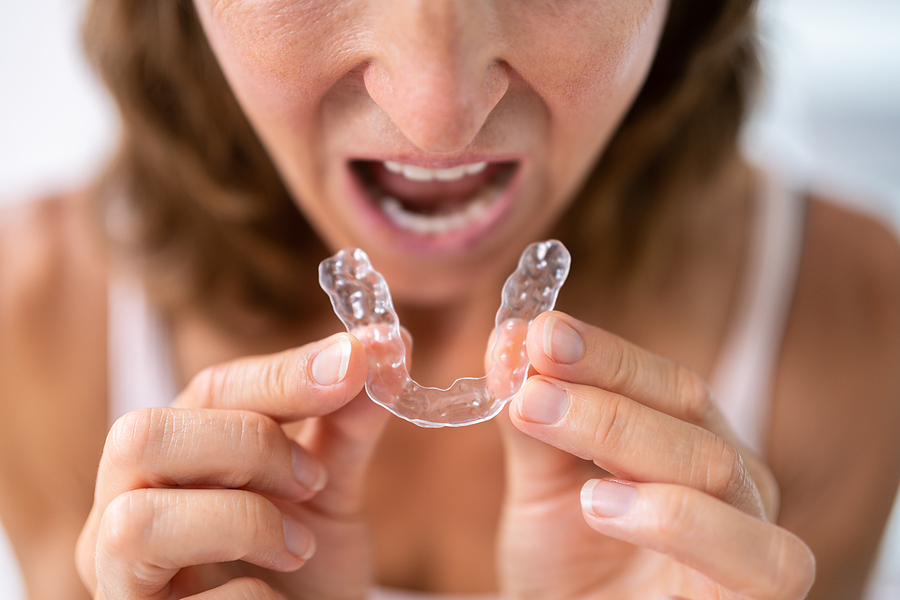Unveiling Dental Decay: Identifying Signs and Symptoms of Cavities
Posted by John Hartman Mar 26,2024

Your smile is precious, but lurking beneath the surface may be a sneaky culprit waiting to wreak havoc – cavities. Cavities, also known as dental caries, are primarily caused by a combination of factors. One major culprit is poor oral hygiene habits that lead to the buildup of plaque on teeth. When plaque isn't removed through proper brushing and flossing, it can erode tooth enamel over time.
Moreover, frequent consumption of sugary or acidic foods and drinks plays a significant role in cavity formation. Bacteria in the mouth feed on these sugars and produce acids that attack tooth enamel, weakening it and eventually causing decay. And let's not forget about inadequate fluoride exposure – this mineral helps strengthen enamel and protect teeth from decay.
Additionally, factors like dry mouth conditions, certain medications that reduce saliva production, and even genetics can contribute to an increased risk of developing cavities. Understanding these causes can empower you to make informed choices for better oral health maintenance.
Signs and Symptoms of Cavities
When it comes to dental decay, being able to recognize the signs and symptoms of cavities is crucial for maintaining good oral health. One common indicator of a cavity is experiencing tooth sensitivity or pain when consuming hot, cold, sweet, or acidic foods and beverages. If you notice persistent pain in a specific tooth, it could be a red flag for decay.
Another sign to watch out for is visible holes or pits on the surface of your teeth. These can indicate that the enamel has been compromised by bacteria, leading to cavity formation. Additionally, if you observe brown, black, or white stains on your teeth that weren't there before, it might be time to schedule a check-up with our dentist in Indianapolis, IN.
Bad breath that doesn't improve even with proper oral hygiene practices could also be linked to cavities. The bacteria causing decay emit foul odors that contribute to halitosis. Keep an eye out for any changes in the appearance and sensation of your teeth as early detection can prevent further damage down the road. Contact us to learn more!
Importance of Early Detection and Treatment
Early detection and treatment of cavities are crucial in maintaining good oral health. When left untreated, cavities can progress and lead to more serious issues like toothaches, infections, and even tooth loss.
By identifying signs of cavities early on, such as tooth sensitivity or visible holes in the teeth, you can prevent further decay and damage. Seeking prompt dental care can help address the issue before it worsens.
Regular dental check-ups play a vital role in detecting cavities at an early stage. The dentist in Indianapolis, IN, can spot potential problem areas that may not be noticeable to the naked eye during routine exams.
Treatment for cavities is typically straightforward when caught early, often involving simple procedures like fillings or sealants. Ignoring cavity symptoms can result in more extensive treatments like root canals or extractions down the line.
Taking proactive steps towards early detection and treatment of cavities is key to preserving your smile and preventing unnecessary pain or discomfort.
Prevention Techniques for Dental Decay
Prevention is key when it comes to maintaining a healthy smile in Indianapolis, IN. One of the most effective ways to prevent dental decay and cavities is by practicing good oral hygiene habits. This includes brushing your teeth at least twice a day with fluoride toothpaste and flossing daily to remove plaque buildup between teeth.
Regular visits to your dentist in Indianapolis are also crucial for preventing cavities. Professional cleanings can help remove hardened plaque that regular brushing may have missed. Additionally, our dentist in Indianapolis, IN, can detect early signs of decay and provide appropriate treatment before it progresses further.
Limiting sugary foods and drinks can also help prevent cavities. Bacteria in the mouth feed on sugars, producing acids that erode tooth enamel. Opt for water or unsweetened beverages instead of sugary sodas or juices.
Consider using dental sealants to protect vulnerable areas of your teeth from decay. These thin protective coatings are applied to the chewing surfaces of molars and premolars, where cavities commonly form.
By incorporating these prevention techniques into your oral care routine, you can reduce your risk of developing cavities and maintain a healthy smile for years to come in Indianapolis, IN!
Conclusion: Taking Care of Your Oral Health
As we have explored the world of dental decay and cavities, it is evident that early detection and treatment are crucial in maintaining good oral health. Remember, prevention is key when it comes to avoiding cavities. By practicing proper oral hygiene, visiting our dentist in Indianapolis, IN, regularly, and being mindful of your diet, you can significantly reduce the risk of developing cavities.
In Indianapolis, IN, residents are fortunate to have access to quality dental care services that can help them maintain healthy smiles for years to come. So don't wait until it's too late – start taking care of your oral health today! Your teeth will thank you for it in the long run.
To learn more, contact Carmel Smiles at (317) 581-0215 or visit us at 3091 East 98th Street, Suite 220, Indianapolis, IN 46280. For new patients, we have easy guidelines to make your visit comfortable and easy!
More Blog Posts
Office Hours
MON7:00 am - 4:30 pm
TUE7:00 am - 5:00 pm
WED7:00 am - 1:00 pm
THU8:00 am - 4:30 pm
FRI9:00 am - 1:00 pm
SAT - SUNClosed





